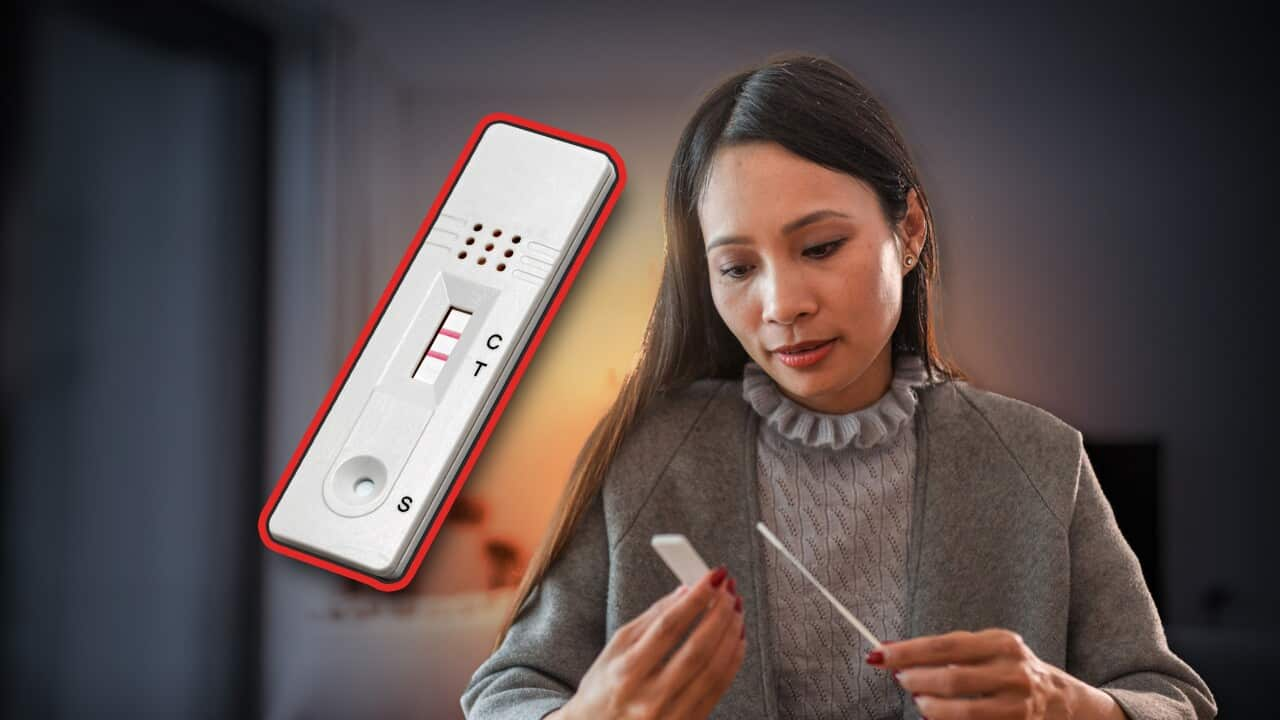Many states and territories have increased their reliance on RATs as the PCR testing network stretches beyond capacity following an uplift in the number of COVID-19 cases.
RAT reporting mechanisms are already live in many states and people who test positive with a RAT need to personally notify health authorities, allowing their infection to be counted in official case tallies.
After reporting a positive RAT, people will also become eligible to receive the support afforded to PCR-tested positive cases.
Other jurisdictions look set to make similar moves in the near future.
It’s an evolving situation but, as of 12 January, here’s how each state and territory is using RATs:
Victoria
Victoria is treating positive RAT results the same as PCRs.
From 7 January, anyone who receives a positive RAT is classified as a "probable" COVID-19 case and must isolate for seven days and notify their contacts. They’ll then receive the same clinical and financial support as PCR-confirmed cases.
"In the eyes of the health department, you have COVID," Acting Chief Health Officer Ben Cowie said on 6 January of those receiving a positive result from a RAT.
The reporting hotline (1800 675 398) and online form are open, with more information available from the Victorian Government’s coronavirus reporting page.
Testing commander Jeroen Weimar says the hotline and form will check symptoms, whether people are a contact, the support they need, their vaccination status and pre-existing conditions.
He says it will allow for care to be provided faster, that the system has the capacity to deal with 50,000 reports a day and that it can be stepped up if necessary.
Tasmania
The Tasmanian government has made the shift to RATs as the primary method for diagnosing COVID-19 cases.
Premier Peter Gutwein said people who test positive on a RAT will be considered a case of COVID-19 and be subject to the same requirements as a positive PCR case.
People who return a positive RAT must register their result, after which they’ll be able to access care and financial assistance.
Tasmanians can register their positive RAT result on the government's online form or call Public Health (1800 671 738). More information is available at the Tasmanian Government's information for positive cases page.
Mr Gutwein said PCR tests will remain available for people who cannot access a RAT, cannot use one, are having trouble interpreting the result or have been clinically directed to have a PCR test.
NSW
NSW is treating positive RAT cases the same as PCRs and on 12 January the state made the reporting of positive RATs mandatory.
"This health order has been signed off this morning," Premier Dominic Perrottet told reporters on Wednesday.
If someone fails to register a positive RAT they risk a $1,000 fine, which will be enforced from 19 January, he said.
Residents of NSW can register their positive RAT result on the government's online form or call Public Health (1300 066 055). More information is available at the NSW Government’s rapid antigen tests for community page.
Queensland
From 9 January, Queensland started including self-reported RAT results in its daily figures.
“Queensland will be facing its biggest test over the next four weeks,” Premier Annastacia Palaszczuk said.
People who test positive on a RAT must immediately isolate for seven days.
For more information, visit the Queensland Government’s First Steps If You Have COVID-19 page.
To report a positive RAT case, visit the government’s Rapid Antigen Test Registration page or call 134 268.
ACT
People with a positive RAT result are no longer required to go for a PCR test at an ACT Government testing clinic to confirm that they have COVID-19.
Chief Minister Andrew Barr said on 8 January this change will make it easier for Canberrans who have had a positive COVID-19 test or require testing.
“All registered users of Check In CBR have been notified of these changes via a push notification,” he said.
ACT Health has set up a page, covid19.act.gov.au/RAT-positive for people to report their own positive tests, or those of people they care for.
South Australia
According to the South Australia Health website, “anyone who returns a positive RAT result must immediately seek a diagnostic COVID-19 PCR test and quarantine until a negative PCR result. Everyone who uses a RAT is asked to fill out this online Rapid Antigen Test Reporting Form.”
Northern Territory
The Northern Territory has also launched a RAT declaration form. According to territory guidelines, anyone testing positive on a RAT must isolate immediately, complete the RAT declaration form, let other members of their household know about their positive result, register for the COVID CareNT program and book in for a COVID-19 PCR test.
Western Australia
Western Australia announced on 5 January it would lift its ban on the use of RATs imminently. Guidelines around their use are yet to be detailed. The WA Government’s coronavirus information is available on its coronavirus webpage.
With additional reporting by AAP.



